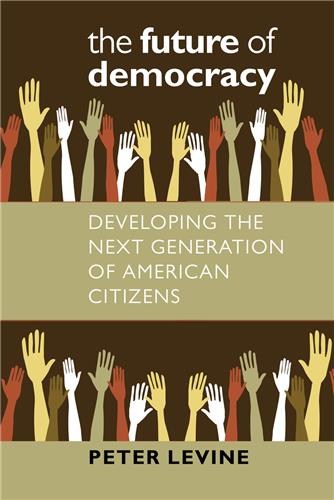Levine’s book is a little gem that I will keep on my bookshelf, close at hand. I first met Levine through his work on the Civic Mission of Schools, setting forth a consensus view of what we can do in our nation’s schools to rescue students from the era of civic and historical illiteracy. The Future of Democracy is an apt name for this book. Without taking more aggressive steps as a nation to put our country’s civic health on the national radar screen-and to engage families, schools, communities, churches and political institutions in fostering a spirit of civic commitment among our young people-the future of that democracy looks grim. Levine finds innovative ways at all levels of education and governance to rescue it.




